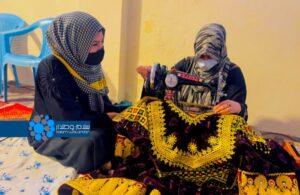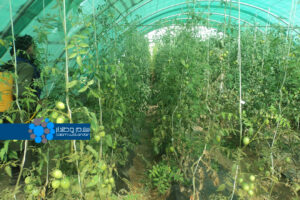KABUL (SW) – Veterinarians say that violence and neglect towards animals, particularly abandoned dogs in public spaces, are increasingly becoming common in Afghanistan.
They add that this situation reflects the lack of a proper culture for caring for and treating animals correctly among the people.
A number of Kabul residents mention an increase in violence against animals, especially dogs, on the streets. They report seeing animals being run over by cars and ignored by drivers. According to them, this issue is not limited to children; adults are also involved in these violent acts.
Firooza, who lives in the “Khairkhana” area of Kabul and has a pet cat, shared her thoughts on animal abuse: “I have seen excessive animal cruelty in our society. I have even seen cars run over a dog and drive away without stopping. I have also seen adults doing this. In my opinion, anyone who has experienced cruelty, will tend to be cruel to animals.”
Tahmina, a resident of the “Makroryan” area of Kabul, says she loves and sympathizes with animals and takes good care of her pet. However, she admits that she has never helped any stray animals on the streets. She adds: “I love animals a lot. I have a cat, and I feed it bread and food and take it for vaccinations. But I have never brought food to the animals that are out on the streets or in alleys, even though I feel sorry for them.”
Similarly, Jawad, a resident of the “Cinema Pamir” area of Kabul, expressed concern about the condition of street animals and points to the government’s and people’s indifference towards them. He said: “Animals, especially dogs and cats, become weak and thin in open areas, and no one cares about them.”
People interviewed for this report are calling for greater attention to the welfare of street animals and for the creation of supportive programs for them.
Zahra, a resident of the “Qala-e-Fathullah” area of Kabul, is worried about the situation of street animals and believes they are an inseparable part of nature and should be given serious attention. She says: “Abusing animals and being indifferent to them is like being indifferent to life itself. They too have rights.”
Samira, another resident of the Khirkhana area, believes that some people take pleasure in harming animals, and this improper behavior reflects a lack of empathy and responsibility towards defenseless animals. She says: “People enjoy hurting animals and have no compassion for them. They don’t feel responsible at all, and they don’t care if an animal on the street is hungry or sick. No one thinks about the animals.”
Faiza, a resident of the “Kart-e-Chahar” area of Kabul, says that animals should live in their natural habitats and not be forced into human environments. “We easily take animals out of their natural habitats and bring them into human environments. I think every animal is happier in its natural environment. When we put young animals in boxes or cages, they become domesticated. In reality, we are keeping them in prison. That’s exactly how I feel; if I were to have a pet, I would keep a fish in an aquarium.”
Meanwhile, religious scholars mention that in Islam, every living creature is to be respected, and religious teachings emphasize the importance of empathy and attention to animal rights in society.
Rohullah Rahimi, a religious scholar, says: “The Prophet Muhammad (PBUH) said in a Hadith that a dog, which was about to die from thirst, was saved by a person who gave it water from a well. The Prophet told this person that they would be rewarded with Paradise for giving water to a dog. The Quran also says that humans can use dogs and other animals for transporting goods, but only if they are well-treated and not overburdened.”
Sewita Habibi, a psychologist, sees the root causes of animal abuse as power display by adults, lack of empathy, antisocial disorders, and improper upbringing.
Environmental experts also stress the importance of wildlife preservation and its connection to the ecosystem. Khatera Hussaini, an environmental expert, says: “Wildlife preservation is not just about protecting species, but also about maintaining ecological stability and balance. Wildlife is an inseparable part of our native environment and is directly connected to the overall health of the ecosystem.”
In this context, Nematullah Barekzai, a cultural advisor at the Kabul Municipality, reports that 25,000 dogs were collected from public spaces. “Last year, we collected 25,000 dogs and transferred them to the Gazak area. We spayed the female dogs and neutered the male dogs. We also euthanize dogs infected with rabies according to health standards.”
It is worth noting that animal abuse has always been a serious and concerning issue in various societies. While humans constantly strive to build a better world for themselves, however animals, as helpless creatures, often receive little attention.






